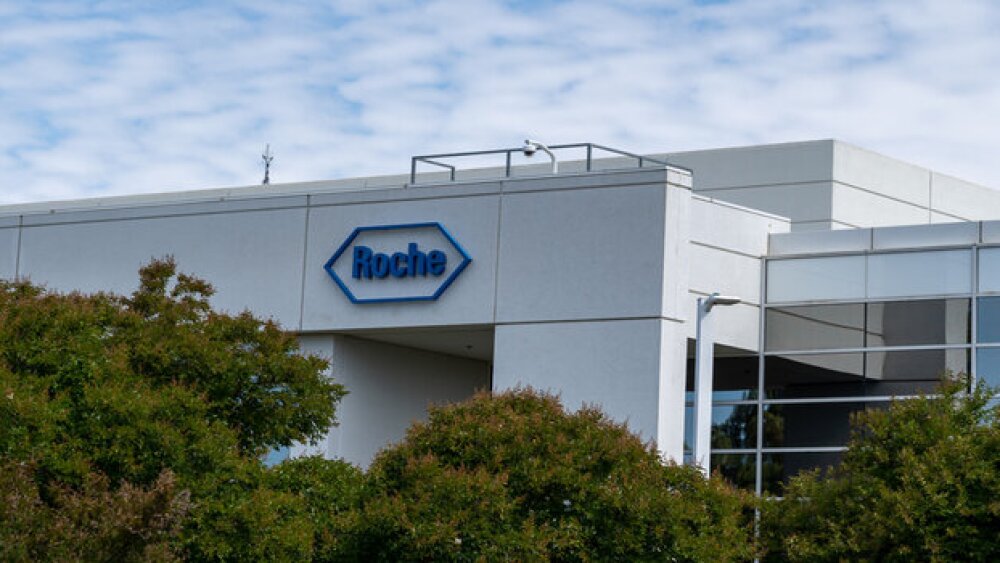Approved earlier this month for children and adults with one or more food allergies, Xolair in a Phase III study reduced severe allergic reactions in patients suffering from multiple food allergies.
Pictured: Roche’s building in California/iStock, JHVEPhoto
Roche on Sunday released results from the first stage of the Phase III OUtMATCH study, demonstrating that its asthma drug Xolair (omalizumab) can significantly reduce severe allergic reactions in patients with several food allergies.
The data, published on Sunday in The New England Journal of Medicine, showed that 67% of Xolair-treated patients could consume at least 600 mg of peanut protein without having severe allergic reactions, compared to only 7% of those taking placebo. In addition, 41% in the Xolair arm were able to eat at least 1,000 mg of cashew protein without experiencing severe reactions versus 3% in the placebo group.
Xolair also suppressed allergic reactions to egg protein, with 67% of treated patients being able to tolerate an intake of at least 1,000 mg without a severe reaction, compared to 0% of the placebo counterparts. The drug’s benefit was statistically significant for all three allergens, with p-value less than 0.001, according to Roche’s announcement.
Additionally, Xolair met OUtMATCH’s key secondary endpoints allowing a greater proportion of patients to consume at least 1,000 mg of walnut, hazelnut and wheat protein without suffering from moderate to severe allergic reactions.
In terms of safety, OUtMATCH found that adverse events were comparable between the Xolair and placebo arms. The most common side effect was injection site reaction.
Roche CMO Levi Garraway in a statement called these data “a major advance” for the company, helping it address “critical gaps in care for conditions like food allergy.”
“Xolair provides a new way to help manage food allergies for children and adults who live with the constant fear of life-threatening allergic reactions,” Garraway said.
Developed by Roche’s Genentech and Novartis, Xolair is a humanized monoclonal antibody that works by selectively binding to the IgE antibody, which is central to the body’s allergy response. Xolair reduces the overall levels of free IgE and downregulates high-affinity receptors, which in turn lowers mast cell degranulation and dampens the allergic inflammatory cascade.
Xolair was first approved by the FDA in 2003 for moderate-to-severe asthma and the drug has since picked up several other indications, including chronic rhinosinusitis with nasal polyps and chronic spontaneous urticaria.
Earlier this month, the FDA cleared Xolair as the first and only medicine to reduce allergic reactions in children and adults with multiple food allergies.
Tristan Manalac is an independent science writer based in Metro Manila, Philippines. Reach out to him on LinkedIn or email him at tristan@tristanmanalac.com or tristan.manalac@biospace.com.






